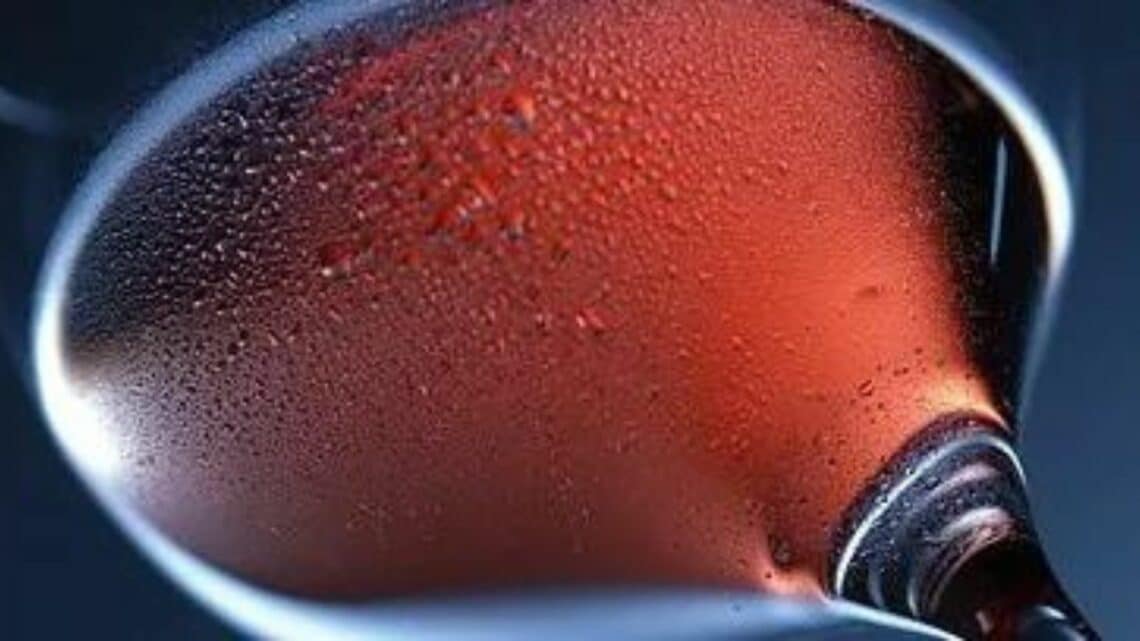
Should Zweigelt be chilled?
Hey there! Heard there’s some debate about chilling Zweigelt!
When it comes to the serving temperature of red wines, a longstanding debate exists, and Zweigelt, an Austrian red grape variety, finds itself at the center of this discussion.
The question arises: Should Zweigelt be chilled?
While conventionally red wines are enjoyed at room temperature or slightly below, there is a growing camp of enthusiasts advocating for chilling Zweigelt.
Here’s the thing: some folks say room temperature is best to enjoy all the flavors. But others love it nice and chilled for a refreshing taste, especially when it’s hot out. Think of it like this: Zweigelt is a lighter-bodied red, kind of like Beaujolais, with bright fruit flavors. So chilling it can really bring those out and make it super drinkable. Now, some Zweigelts are aged in oak barrels, which adds a bit more complexity. Those might be better at room temp. But the bottom line? It’s your call! Chill it if you want something refreshing, or enjoy it at room temperature to explore all the flavors.
A beginner’s guide to Zweigelt
Zweigelt, Austria’s most significant red grape variety, was created in 1922 by crossing Blaufränkisch and St Laurent. It ripens easily and early but is sensitive to diseases and frost.
Wines made from Zweigelt have a deep ruby color and exhibit straightforward red fruit flavors, mainly cherry with occasional hints of raspberry. Some wines may also display spicy, earthy, or herbal notes.
On the palate, Zweigelt wines are soft with low or melted tannins, showcasing flavors of forest fruits like cherry, raspberry, and blackberry. They are typically medium-bodied with high to medium acidity.
Zweigelt is widely grown in Austria, with significant plantings in Niederösterreich (Lower Austria) and Burgenland.
In Niederösterreich, it can be found in Kremstal and Kamptal, particularly near Gobelsburg.
However, it is most prominent in Carnuntum and Thermenregion. In Carnuntum, the unique style of Rubin Carnuntum is produced, which is a minimum six-month-aged pure Zweigelt.
In Burgenland’s Rosalia DAC, Zweigelt represents 19% of the plantings, making it a close second to the leading grape variety, Blaufränkisch. It is also the most important grape variety in Neusiedlersee, where it is the sole grape variety permitted for the DAC.
Outside of Austria, Zweigelt can be found in neighboring countries such as Slovakia and Hungary, as well as in the USA and Canada. Its cultivation in various regions showcases the versatility and popularity of this Austrian red grape variety.
Yes, Zweigelt can be chilled in some cases
Some say chilling Zweigelt, ie serving it at a cooler temperature enhances its refreshing and thirst-quenching qualities. They believe that chilling can intensify the vibrant fruit flavors and bring out the lively acidity of the wine, making it a perfect choice for warm weather or as an aperitif.
Many wine experts and enthusiasts have shared anecdotes of enjoying chilled Zweigelt, praising its ability to deliver a crisp and enjoyable experience (see video at the end of the article)
Furthermore, there has been a growing preference for chilled red wines among consumers. As palates evolve and new trends emerge, many wine lovers have started to appreciate the lighter and more refreshing qualities of chilled red wines, challenging the conventional norms.
For me, I always come back to the essence of the wine. Zweigelt wines have a high acidity, low tannins and is usually light-bodied (a bit like Beaujolais in a way). These two reasons, with the fact that is a flavorful wine makes it a perfect candidate for chilling. It will highlight these distinct fruit-forward notes.
However, some experts disagree
On the other side of the debate, traditionalists argue that chilling Zweigelt contradicts the customary serving temperature for red wines. The conventional belief is that red wines, including Zweigelt, should be served at room temperature or slightly below to preserve their complexity and aromas. Chilling Zweigelt too much could potentially dull the flavors and mask the wine’s true character, robbing it of its subtleties.
Winemakers and wine experts who oppose chilling Zweigelt emphasize the importance of maintaining the wine’s balance and structure. They caution against sacrificing the wine’s integrity and suggest that Zweigelt should be appreciated for its unique qualities when served at the appropriate temperature.
Indeed, some winemakers use oak with Zweigelt, which will bring tannins to the wine. Thus, these wines are best drunk “at room temperature”. But beware of this formulation. Indeed, it comes from the olden days when temperatures in the room hardly exceeded 18°C.
So, what should you do for these kinds of Zweigelt wines? I would recommend putting it in the fridge 30minutes before serving. The first glass may be a little too cold but you can always warm it up with your hands. This way, the wine won’t be too “hot” during the meal, and especially at the end of the meal. Then, it will be at the perfect temperature!
In the end, it all comes back to your taste!
When it comes to whether Zweigelt should be chilled or not, personal preference and individual taste play a significant role.
Wine enjoyment is subjective, and I would encourage you to explore different serving temperatures.
If you prefer a crisper and more refreshing experience, chilling Zweigelt can be an intriguing option. However, if you value the wine’s complexity and want to savor its full range of flavors, serving it at a slightly cooler than room temperature might be more suitable.
To accommodate various preferences, consider serving Zweigelt at a range of temperatures. Experimentation is key to discovering your own preferences and finding the ideal balance between chilling and preserving the wine’s unique characteristics.
To properly chill Zweigelt, refrigerate it for about 20-30 minutes before serving if you prefer a slightly cooler temperature. If you desire a more chilled experience, keep it in the refrigerator for 45-60 minutes. Avoid over-chilling, as excessively low temperatures can mute the flavors and aromas.
Conclusion: Should Zweigelt be chilled?
In the debate over whether Zweigelt should be chilled, there are valid arguments on both sides. Ultimately, the decision comes down to personal preference.
Whether you choose to enjoy Zweigelt chilled for its refreshing qualities or savor it at traditional serving temperature for its complexity, the most important thing is to explore and appreciate this delightful wine.
So, grab a bottle of Zweigelt, chill it to your liking, and savor the experience. Cheers!








2 Comments
Franck MULARD
Hello
I have tasted chilled, and it’s very nice!
I recommand it
Mademoiselle
Thank you Franck for you input!!